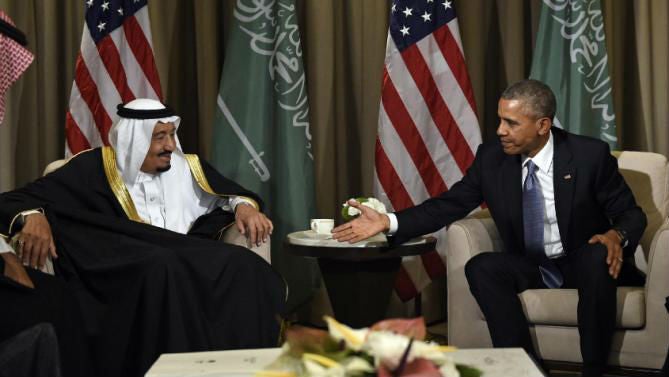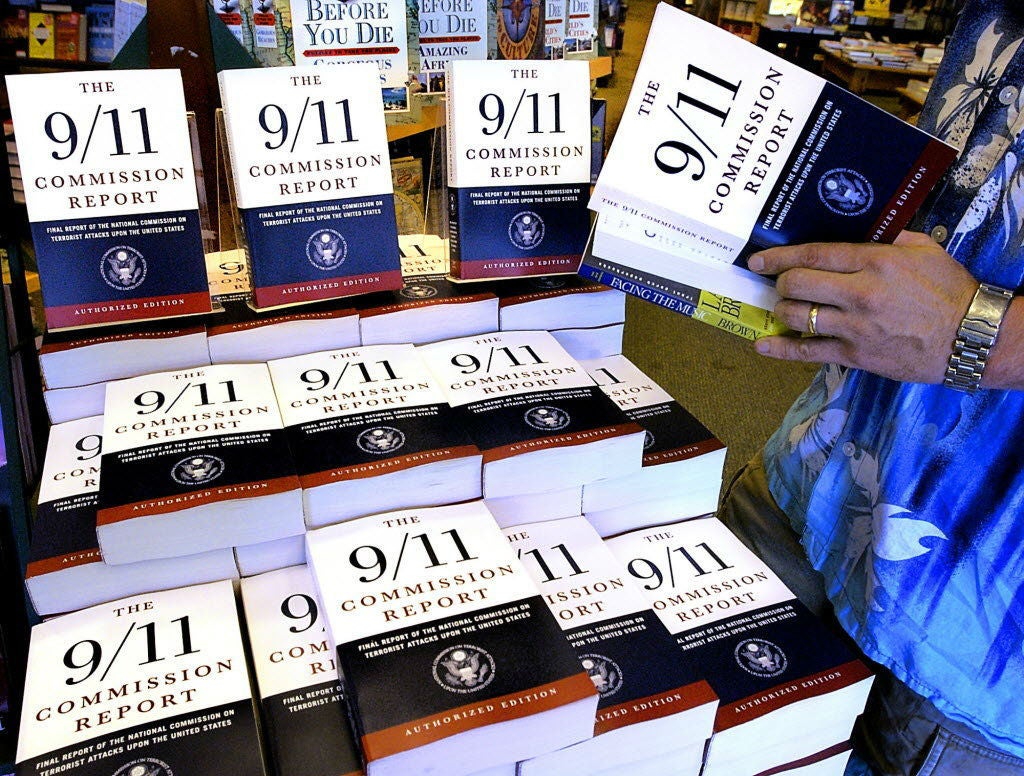Saudi Arabia threatens to sell off US assets if Congress passes 9/11 bill
The relationship between the two countries has been under pressure in recent years

Your support helps us to tell the story
From reproductive rights to climate change to Big Tech, The Independent is on the ground when the story is developing. Whether it's investigating the financials of Elon Musk's pro-Trump PAC or producing our latest documentary, 'The A Word', which shines a light on the American women fighting for reproductive rights, we know how important it is to parse out the facts from the messaging.
At such a critical moment in US history, we need reporters on the ground. Your donation allows us to keep sending journalists to speak to both sides of the story.
The Independent is trusted by Americans across the entire political spectrum. And unlike many other quality news outlets, we choose not to lock Americans out of our reporting and analysis with paywalls. We believe quality journalism should be available to everyone, paid for by those who can afford it.
Your support makes all the difference.Officials in Saudi Arabia have reportedly told the Obama administration they will sell off hundreds of billions of dollars of American assets if Congress passes a bill that would allow the Saudi government to be held responsible for any role in the September 11 assaults.
On the eve of President Barack Obama’s visit to Saudi Arabia, the New York Times said the White House had been lobbying Congress to block the bill’s passage and that the threat from Saudi Arabia had been the subject of intense talks.
It said that Adel al-Jubeir, the Saudi foreign minister, delivered the kingdom’s message last month during a trip to Washington, telling legislators that Saudi Arabia would be forced to sell up to $750bn in treasury securities and other assets in the United States before they could be in danger of being frozen by American courts.

Fifteen of the nineteen men who hijacked four planes and flew them into targets in New York and Washington in 2001 were Saudi citizens, though Riyadh has always denied having any role in the attacks.
A US commission established in the aftermath of the attacks also concluded there was no evidence of official Saudi connivance. However, the White House has been under pressure to declassify a 28-page section of the report that was never published on the grounds of national security.
New York Senator Kirsten Gillibrand, who has read the report, and Senator Bob Graham, who co-chaired the joint congressional inquiry, have said the victims’ families deserved to read the report before Mr Obama visits the Middle East next week.
The families have been trying to use the courts to hold responsible members of the Saudi royal family, Saudi banks and charities. Yet these efforts have been largely blocked because of a 1976 law that gives foreign nations some immunity from lawsuits in American courts.
The newspaper said the Senate bill was intended to make clear that the immunity given to foreign nations under the law should not apply in cases where nations are found culpable for terror attacks that kill Americans on United States soil.
If the bill were to pass both houses of Congress and be signed by the president, it could clear a path for the role of the Saudi government to be examined in the September 11 lawsuits.
President Obama will arrive in Riyadh on Wednesday for meetings with King Salman and other Saudi officials and attend a summit with other leaders of the Gulf Cooperation Council (GCC) on Thursday. It is unclear whether the dispute over the September 11 legislation will be on the agenda for the talks.
Earlier this week, US officials briefing reporters on the president's visit, said Saudi Arabia was a key regional ally despite the relationship coming under pressure in recent years as the US has sought to reset its interaction with Iran
“As you’ll hear more coming out of the summit, there’s been agreements reached to increase our cooperation on counterterrorism, streamlining the transfer of critical defense capabilities to our GCC partners, bolstering GCC ballistic defense…systems, and defending against the cyber threat,” said Rob Malley, a senior adviser to Mr Obama on the Middle East.
Join our commenting forum
Join thought-provoking conversations, follow other Independent readers and see their replies
0Comments